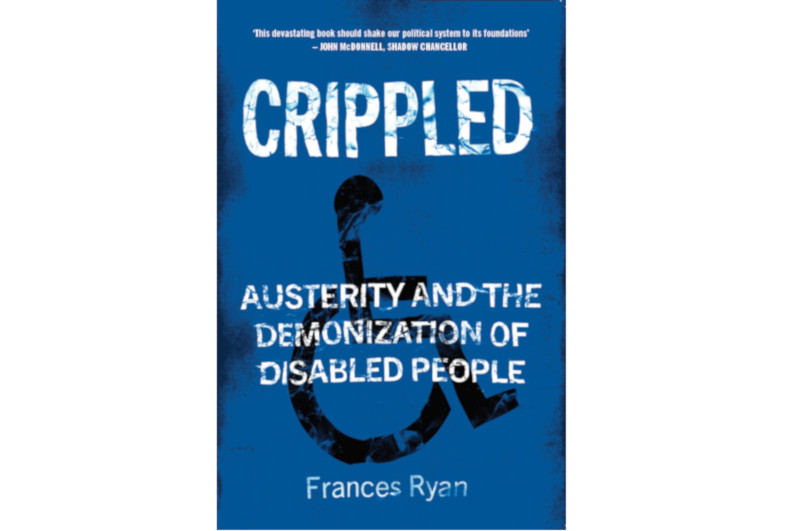Journalist as author: Dr Frances Ryan – Crippled

‘Above anything, I’m proud to help push austerity onto the mainstream agenda. Nothing means more than our stories making a tangible difference’ – Dr Frances Ryan is a Guardian columnist and feature writer, reporting on poverty, social mobility and disability. Having explored inequality in education during her doctorate in politics, Frances now covers the impact of the coronavirus alongside lighter pieces on pop culture.
Aiming to look below the surface when it comes to Britain’s support of those in need, Frances authored the book Crippled: Austerity and the Demonization of Disabled People to highlight the importance of compassion, during times of crisis and beyond.
Can you introduce your book in a couple of sentences?
Crippled: Austerity and the Demonization of Disabled People is about the scandal of austerity hitting disabled people. But more than that, it’s about Britain’s long troubled relationship with disability and how our society needs to fight for the welfare state more than ever.
Could you tell us about how you came to write it?
I started reporting on austerity in 2012 and soon noticed policies were having a terrible impact on disabled people more than any group. I’d get daily messages, emails, even letters from readers saying they could no longer afford to eat after having their benefits removed or get washed because their social care had been cut.
It spoke to me about the horrific human consequences of Government policy but also about a cultural shift. Britain has always prided itself on being a compassionate country that protects the so-called most vulnerable. I wanted to poke below the surface of that national myth.
Are you working on another book, or do you have other projects under way?
I’m writing an Afterword for the paperback of Crippled, which is due out in September, as well as editing the Spanish edition.
At The Guardian, I’m writing my weekly column and also reporting on coronavirus. I’m aiming to do coverage that focuses on the impact of the pandemic on marginalised people falling through the cracks. For example, my investigation into the disabled people missed off the Government’s vulnerable list who are going hungry. We all need a bit of cheer right now, so I keep writing on pop culture, TV and lifestyle too.
Are there any other examples of your everyday journalism that you’re especially proud of or would just like to share?
I’m proud of exclusive investigations, like my recent work on the Department of Work and Pensions offering low benefit deals to vulnerable claimants.
I love the film I co-created with my colleague John Domokos at the 2017 general election that got seven million views on Facebook; sometimes visuals are really powerful to bring a story home.
Above anything, I’m proud of helping to push austerity onto the mainstream agenda. Nothing means more than our stories making a tangible difference, like changing the lives of people featured or even raising money for those who need it.
Are you available for freelance commissions, speaker opportunities or other roles?
Yes! I do keynote speeches regularly, as well as radio, and am open to freelance writing commissions.
If I’m a PR professional with a story or another opportunity for you, how should I get in touch?
Email!
Crippled: Austerity and the Demonization of Disabled People (11/06/2019, Verso Books) is available in hardcopy and ebook format here and as an audiobook and on Kindle on Amazon. Follow Frances on Twitter @DrFrancesRyan or read her work at The Guardian here.




